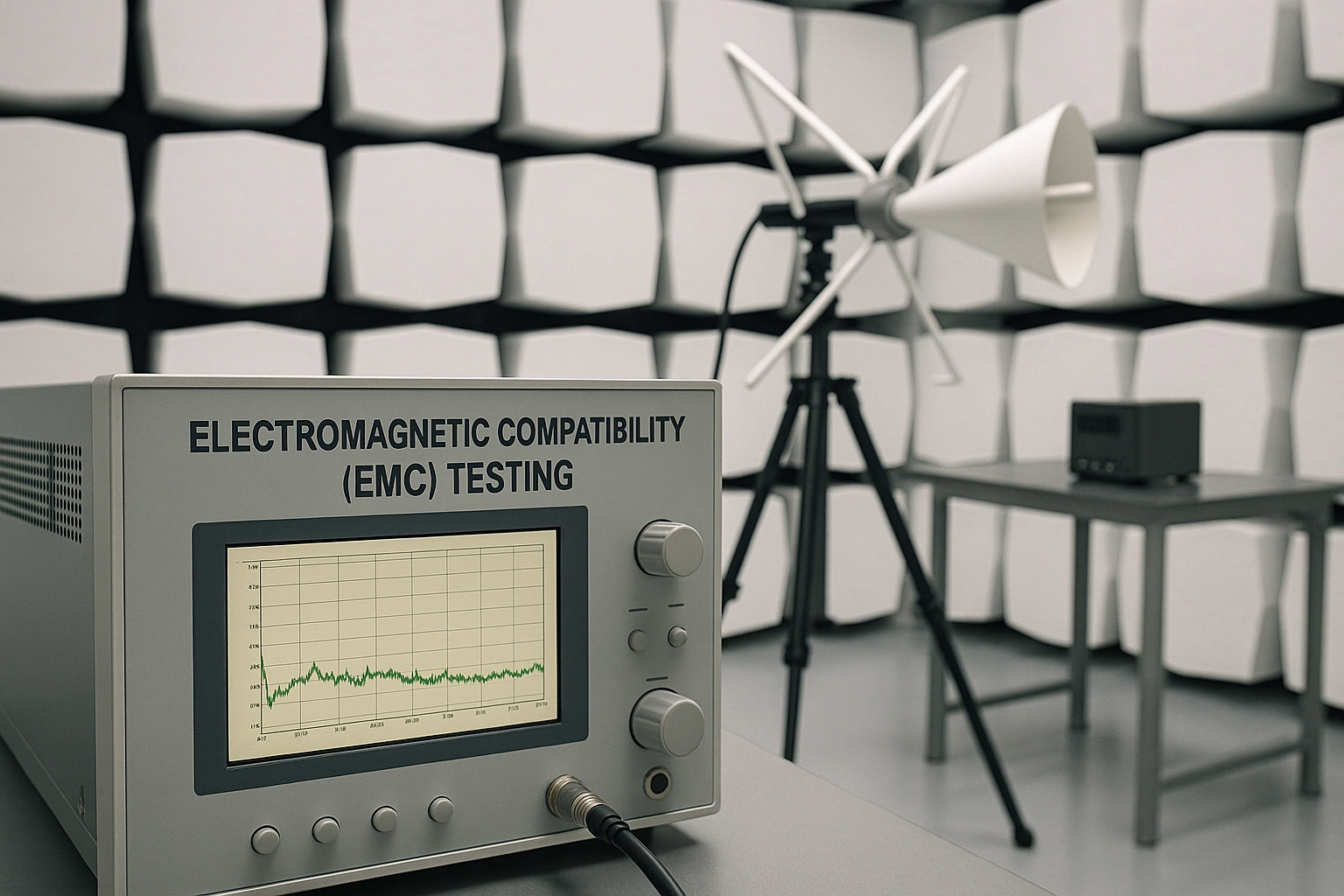GB T 19951 Electric Vehicle EMC Immunity Test
The GB/T 19951 standard is a crucial part of ensuring that electric vehicles (EVs) function correctly in complex electromagnetic environments. This test evaluates the immunity of EVs to various forms of electromagnetic interference, which can originate from both internal and external sources such as radio transmitters, power lines, and other electronic devices.
The purpose of this test is to ensure compliance with national standards for the protection of electric vehicles against electromagnetic disturbances that could affect their performance. The standard provides a detailed framework for testing, ensuring that all components of an EV are capable of operating safely and effectively in environments where electromagnetic interference may be present.
Compliance with GB/T 19951 is mandatory for manufacturers wishing to sell electric vehicles within the Chinese market. This test helps to ensure that the vehicles meet stringent safety standards, thereby protecting both passengers inside the vehicle and pedestrians outside it from potential hazards caused by interference or malfunctions due to electromagnetic emissions.
The testing process involves placing the EV in a controlled environment designed to mimic real-world conditions where electromagnetic interference might occur. The system then simulates various types of interference that could affect the vehicle's operation, including radio frequency fields, conducted and radiated disturbances. By subjecting the electric vehicle to these conditions, engineers can identify any weaknesses in its design or manufacturing process that may lead to failures under actual operational scenarios.
Once testing is complete, detailed reports are generated summarizing all findings from each test run. These reports include information on how well the vehicle performed throughout various stages of exposure to electromagnetic interference. They also highlight areas where improvements could be made based on observed results during the tests conducted according to GB/T 19951.
Understanding these aspects is essential for those involved in quality management, compliance officers, research and development (R&D) engineers, as well as procurement personnel responsible for selecting suppliers or partners who adhere strictly to such standards. Knowledge about what constitutes a successful outcome according to this particular standard will help them make informed decisions regarding product design modifications needed prior to market launch.
Why It Matters
The importance of conducting GB/T 19951 tests on electric vehicles cannot be overstated, especially given the increasing demand for sustainable transportation solutions around the world. As more countries adopt policies encouraging the use of cleaner energy sources like electricity to power road vehicles, ensuring that these systems work reliably in all possible environments becomes increasingly critical.
One key reason why this test matters is its role in safeguarding public safety. If an electric vehicle were affected by electromagnetic interference and failed during critical moments such as braking or steering control, it could lead to accidents resulting in severe injuries or fatalities. By adhering to rigorous testing protocols like those outlined in GB/T 19951, manufacturers can significantly reduce the risk of such incidents occurring.
In addition to safety considerations, compliance with these standards also contributes positively towards reducing environmental impact associated with electric vehicle production and usage. Properly designed vehicles that pass stringent electromagnetic compatibility tests tend to consume less power overall because they operate more efficiently without unnecessary energy losses due to interference-related issues. This efficiency translates into lower CO2 emissions over the lifecycle of each unit produced.
From an economic perspective, meeting these regulatory requirements ensures smoother market entry for electric vehicle manufacturers operating within China's borders. It helps build trust among consumers by demonstrating commitment to quality assurance practices that exceed basic minimum expectations set forth by government regulations alone. Such actions also enhance brand reputation, potentially leading to increased sales volumes and competitive advantages in the broader automotive industry.
Why Choose This Test
- The GB/T 19951 test is specifically tailored for electric vehicles, providing a comprehensive evaluation of their electromagnetic compatibility under realistic conditions.
- This standard ensures that all components within an EV are robust enough to withstand various types of electromagnetic interference without compromising performance or causing failures.
- By adhering to this testing protocol, manufacturers can demonstrate compliance with national regulations, thereby gaining access to the Chinese market and enhancing their reputation among consumers.
- The detailed reports generated from these tests offer valuable insights into potential areas for improvement in future product iterations, helping companies stay ahead of competitors through continuous innovation efforts.
- Compliance with GB/T 19951 helps minimize risks associated with electromagnetic interference-related issues that could impact public safety and environmental sustainability goals.
In summary, choosing the GB/T 19951 test for electric vehicle EMC immunity is not just a regulatory requirement but also an investment in safety, reliability, and long-term success. It allows manufacturers to meet stringent national standards while positioning themselves favorably against competitors who may not prioritize similar levels of quality assurance.
Competitive Advantage and Market Impact
- Innovation Leadership: Adhering to GB/T 19951 demonstrates a company's commitment to staying at the forefront of technological advancements in electric vehicle development. This dedication can attract investors seeking partners committed to sustainable practices.
- Enhanced Brand Reputation: Passing rigorous electromagnetic compatibility tests enhances brand reputation by showcasing superior quality and reliability, which is particularly important for establishing trust with environmentally conscious consumers.
- Increased Market Penetration: Compliance with national standards like GB/T 19951 opens up opportunities to expand market share in the Chinese electric vehicle sector. This expansion can lead to greater profitability and growth potential.
- Competitive Edge: By ensuring that products meet or exceed international expectations for electromagnetic compatibility, businesses gain a competitive edge over those that do not invest in similar quality assurance measures.
In conclusion, investing in GB/T 19951 testing provides numerous benefits beyond mere compliance with regulatory requirements. It fosters innovation, strengthens brand loyalty, increases market penetration, and secures a competitive position within the global automotive industry.





